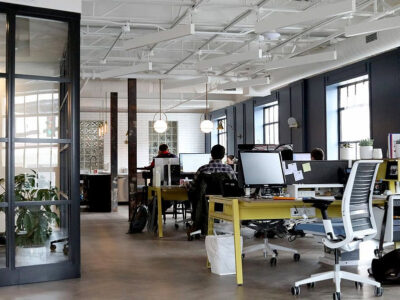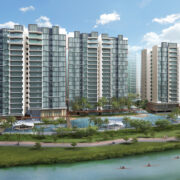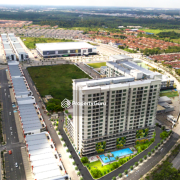The United Arab Emirates has established itself as a global business hub, attracting international investments through its innovative free trade zones. These zones have become a cornerstone of the UAE’s economic strategy, offering a myriad of advantages that lure businesses from all corners of the world. In this article, we’ll explore how free trade zones in the UAE are designed to attract international investments and contribute to the country’s economic growth.
Strategic Location and Connectivity
One of the most compelling reasons why free trade zones in the UAE attract international investments is the country’s strategic location. Situated at the crossroads of Europe, Asia, and Africa, the UAE serves as a gateway to a market of over two billion people. This prime geographic position offers unparalleled connectivity, making it an ideal base for companies looking to expand their operations across multiple regions. With world-class infrastructure, including state-of-the-art ports and airports, businesses can efficiently manage their supply chains and logistics.
Business-Friendly Environment
The free trade zones in the UAE are renowned for their business-friendly policies. Companies operating within these zones benefit from 100% foreign ownership, which eliminates the need for a local partner. Additionally, there are no personal or corporate income taxes, making it a financially attractive option for international businesses. The ease of company setup in these zones further enhances their appeal, with streamlined processes that enable swift and hassle-free registration.
Comprehensive Support Services
Another significant advantage of operating in a free trade zone in the UAE is the comprehensive support services provided to businesses. These zones offer state-of-the-art office spaces, warehouses, and industrial units tailored to meet the specific needs of various industries. Moreover, businesses have access to a wide range of services, including administrative support, legal and financial advisory, and marketing assistance. This holistic support system ensures that companies can focus on their core operations while leveraging the resources available within the free trade zone.
Innovation and Technological Advancements
The UAE’s commitment to innovation and technological advancement is a key driver of international investments in its free trade zones. The government has implemented various initiatives to foster a culture of innovation, such as smart city projects and digital transformation programs. These initiatives create a conducive environment for businesses to thrive, particularly those in technology-driven industries. By leveraging cutting-edge technologies, companies can enhance their productivity, streamline operations, and stay ahead of the competition.
Access to Skilled Workforce
The availability of a skilled and diverse workforce is another factor that makes free trade zones in the UAE attractive to international investors. The country has a robust education system and is home to numerous prestigious universities and technical institutes. This ensures a steady supply of qualified professionals across various fields. Additionally, the UAE’s cosmopolitan environment attracts talent from around the world, providing businesses with access to a global talent pool.
Flexible Regulatory Framework
Free trade zones in the UAE operate under a flexible regulatory framework designed to accommodate the needs of different industries. This adaptability allows businesses to navigate the regulatory landscape with ease and ensures compliance with international standards. The government continuously reviews and updates regulations to keep pace with global trends and industry developments. This proactive approach fosters a dynamic business environment that attracts and retains international investments.
Focus on Sustainability
Sustainability is a core component of the UAE’s economic strategy, and free trade zones are no exception. The government has implemented various green initiatives to promote sustainable business practices and reduce the environmental impact of industrial activities. These initiatives include the adoption of renewable energy sources, waste management programs, and green building standards. By prioritizing sustainability, the UAE appeals to environmentally conscious investors looking to align their business operations with global sustainability goals.
 Conclusion
Conclusion
In conclusion, the free trade zones in the UAE play a pivotal role in attracting international investments by offering a strategic location, business-friendly environment, comprehensive support services, innovation, access to a skilled workforce, a flexible regulatory framework, and a focus on sustainability. These advantages make the UAE an attractive destination for businesses looking to expand their global footprint and capitalize on the opportunities available in the region. As the UAE continues to evolve and innovate, its free trade zones will remain at the forefront of driving economic growth and attracting international investments.













Comments